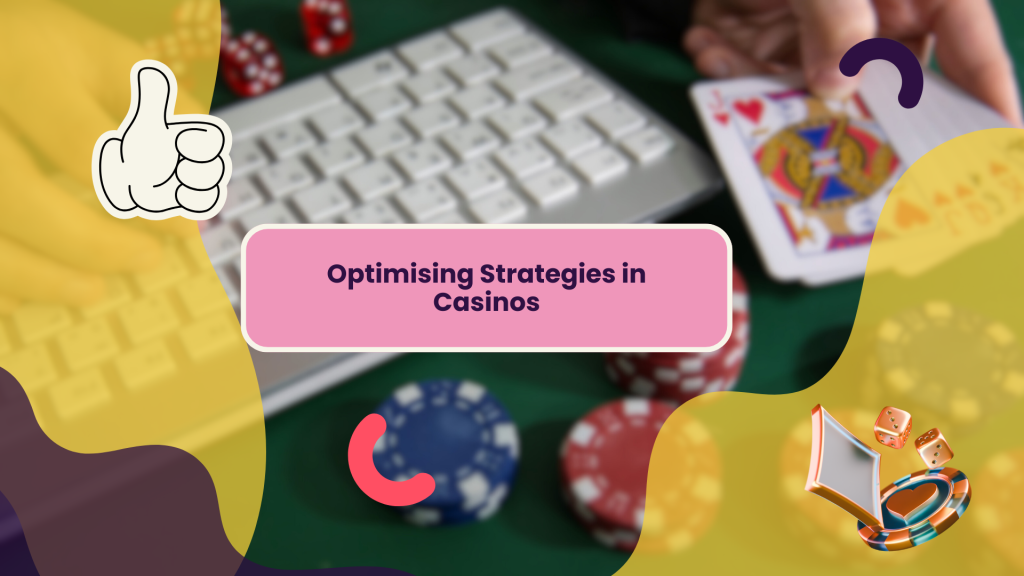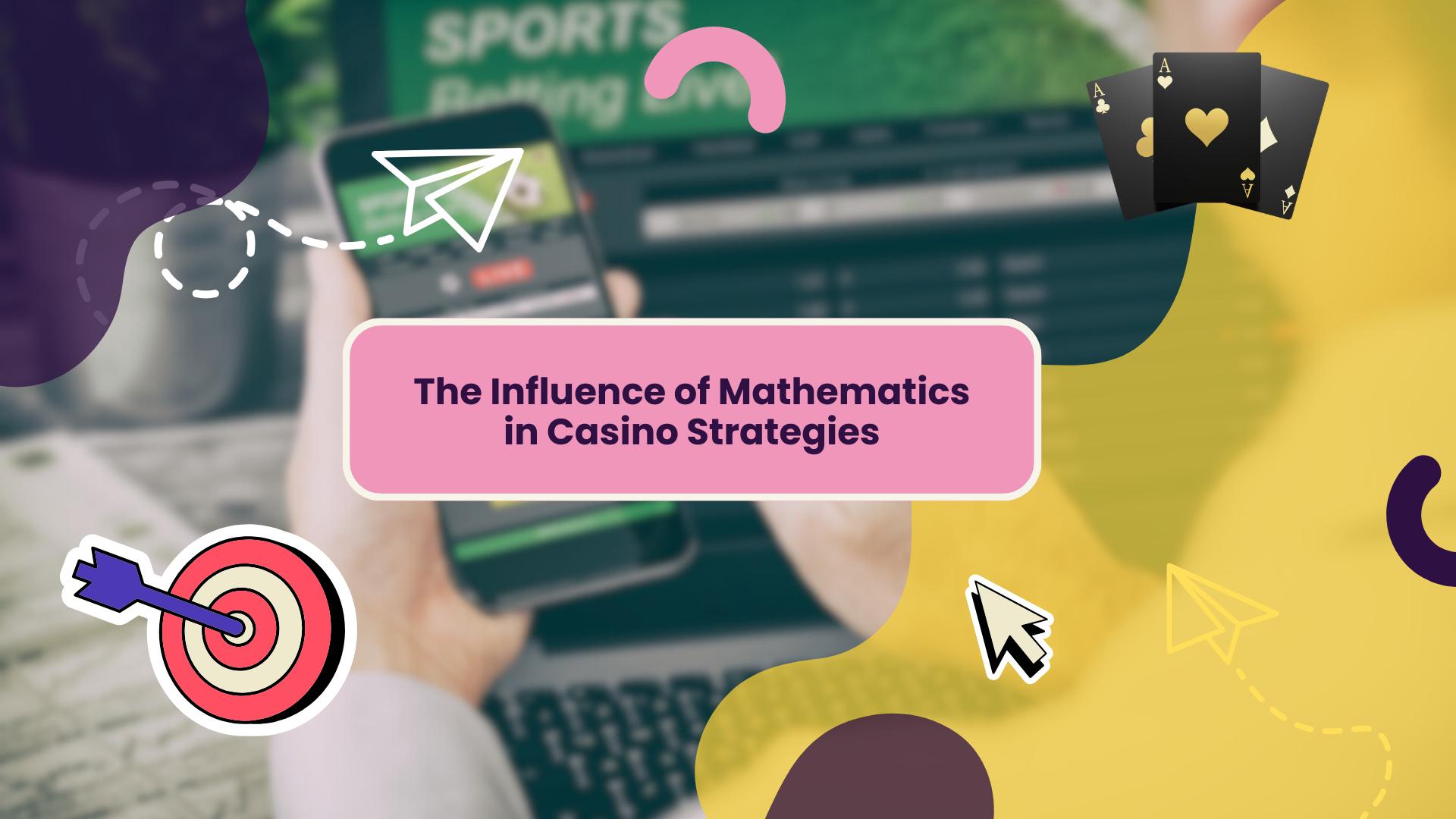Often associated with glamour and excitement, casinos are a place where chance and strategy are intertwined. The appeal of casino games extends not only from the thrill of gambling, but also to the mathematical intricacies that determine their results. Let’s understand the influence of mathematics on casino strategies and analyse how mathematical principles underpin game design, decide player strategies and ultimately shape the dynamics of the casino industry.
Understanding Probabilities in Casinos
Probability theory, the cornerstone of modern mathematics, serves as the foundation on which the entire casino industry is built. Its principles determine the outcome of every spin of roulette, every deal of cards in blackjack, and every roll of the dice. At its core, probability theory provides a framework for understanding and predicting random events, making it indispensable for casino operators and players alike.
For example, in blackjack, probability plays a fundamental role in player decision-making. The probability of drawing a particular card from the deck influences whether a player decides to draw a card, stop, double down, or split the bet. Basic strategy tables, developed through careful mathematical analysis, provide players with optimal moves based on the expectation of different outcomes. For example, the decision to take or stay in blackjack depends not only on the player’s current hand, but also on the dealer’s open card and the likelihood of overcalling or improving the hand.
Casinos also utilise the concept of expected value to ensure that all their games have a consistent edge. By carefully designing games with payouts that are slightly lower than the actual odds of winning, casinos ensure long-term profitability. For example, in European roulette, which has 37 cells including one zero, the payout on a bet per number is 35 to 1, despite the true odds being 36 to 1. This discrepancy ensures that over time the casino retains a small profit, a percentage of each bet placed, which in the long run results in making money.
Understanding expected values enables players to make informed decisions and develop effective strategies. By assessing the potential risks and rewards of different bets, players can select options that offer the highest expected value, thereby maximising their chances of success.
Optimising Strategies in Casinos

The field of strategy in casinos goes far beyond simple gameplay and delves into complex mathematical analysis that can give players a distinct advantage. As we have discussed, for example, in the case of blackjack, a game known for its combination of skill and luck, mastering a basic strategy based on mathematical calculations is key to reducing the casino’s advantage.
However, the search for optimal strategy doesn’t end there. Advanced techniques such as card counting take mathematical analysis to a new level, offering players a serious advantage that can change the odds in their favour. Counting involves keeping track of the cards that have been dealt from the deck, allowing players to assess the composition of the remaining cards and adjust their bets accordingly.
Contrary to popular belief, card counting is not illegal, but rather condemned by casinos. To combat card counters, casinos employ countermeasures such as shuffling decks more frequently, using multiple decks or banning suspicious card counters from playing. Despite this, experienced players armed with mathematical ability can still gain a significant advantage.
Read also about Slot Machine.
At its core, card counting relies on a fundamental principle of probability theory known as conditional probability. By tracking the ratio of the highest to lowest cards remaining in the deck, card counters can determine whether the remaining cards are favourable to the player or the dealer. When the odds are tilted in favour of the player, card counters increase their bets to capitalise on the opportunity, effectively changing the balance of power in the game.
Although card counting requires a high level of skill and concentration, it demonstrates the profound influence of mathematics in shaping casino strategies. By using mathematical principles to analyse and exploit the inherent probabilities of the game, players can elevate their gameplay to a strategic art form. Despite the challenges posed by casino countermeasures, the appeal of using mathematics to gain a competitive advantage continues to fascinate players seeking to beat the odds.
Casino Game Design
The world of casino game design is an exciting blend of creativity and maths, where every element, from rules to payouts, is carefully crafted to ensure a profitable establishment. Behind the flashing lights and enticing themes of the machines lies a complex mathematical framework that governs their operation.
Slot machines are carefully designed to provide a certain percentage of return to player (RTP) over time. This percentage represents the portion of bets that players can expect to receive back as winnings. However, many players may not realise that the RTP is determined by complex mathematical algorithms built into the gaming software.
These algorithms determine the frequency and distribution of winning combinations, as well as the payouts associated with each combination. By carefully adjusting these parameters, game designers can manipulate the game’s volatility and overall payout structure. For example, a slot machine with higher volatility may offer larger payouts but with less frequency, whereas a machine with lower volatility may offer smaller and more frequent wins.
However, it is important to realise that RTP is a long-term statistical average that does not guarantee short-term success. Individual results on slot machines are determined by random number generators (RNGs), which control that each spin is independent and unpredictable. However, by choosing machines with higher RTP percentages and understanding the volatility associated with different games, players can make more informed decisions about where to invest their money.
What’s more, in addition to slot machines, the game design maths extends to other casino offerings such as table games and video poker. Each game is carefully calibrated to maintain a consistent casino advantage, ensuring that it maintains profitability over time.
Risk Management and Bankroll Strategies

Effective risk management is essential for online casino users who want to navigate with caution and foresight. While understanding the maths of gaming provides a solid foundation, implementing sound risk management strategies is equally important for sustainable success.
One of the best risk management tools is the Kelly criterion, a mathematical formula developed by John L. Kelly, Jr. in 1956. The Kelly criterion is designed to calculate the optimal bet size based on a player’s advantage over the casino and the odds of winning. By maximising the expected logarithm of wealth growth, the Kelly criterion seeks to find a delicate balance between growth and risk, aiming to achieve the highest possible long-term growth rate while minimising the risk of financial failure.
One potential disadvantage of the Kelly criterion is its sensitivity to errors in the estimation of the probabilities and odds used in the formula. Small inaccuracies in these inputs can lead to large variations in the recommended bet size, potentially exposing players to excessive risk. Thus, a detailed approach and care is required that takes into account not only the mathematical principles of the Kelly criterion, but also practical considerations and personal risk tolerance.
Moreover, aggressive betting strategies based solely on the Kelly criterion can lead to significant volatility and potential losses, especially in short-term play. To mitigate this risk, users should diversify their bets and utilise sensible bankroll management techniques. This may include setting win-loss limits, dividing the bankroll into smaller portions for each session, and adjusting bet sizes in response to changes in bankroll size and playing conditions.
In conclusion, the combination of maths and casino strategies is complex and profound. From the fundamental principles of probability to the complexities of game design and risk management, maths is a guiding force in the casino industry. Whether you are a beginner looking to improve your odds or an experienced player in search of an advantage, a thorough understanding of mathematical concepts is essential. By harnessing the power of maths, players can unravel the intricacies of casino games, turning randomness into a considered and strategic advantage.











